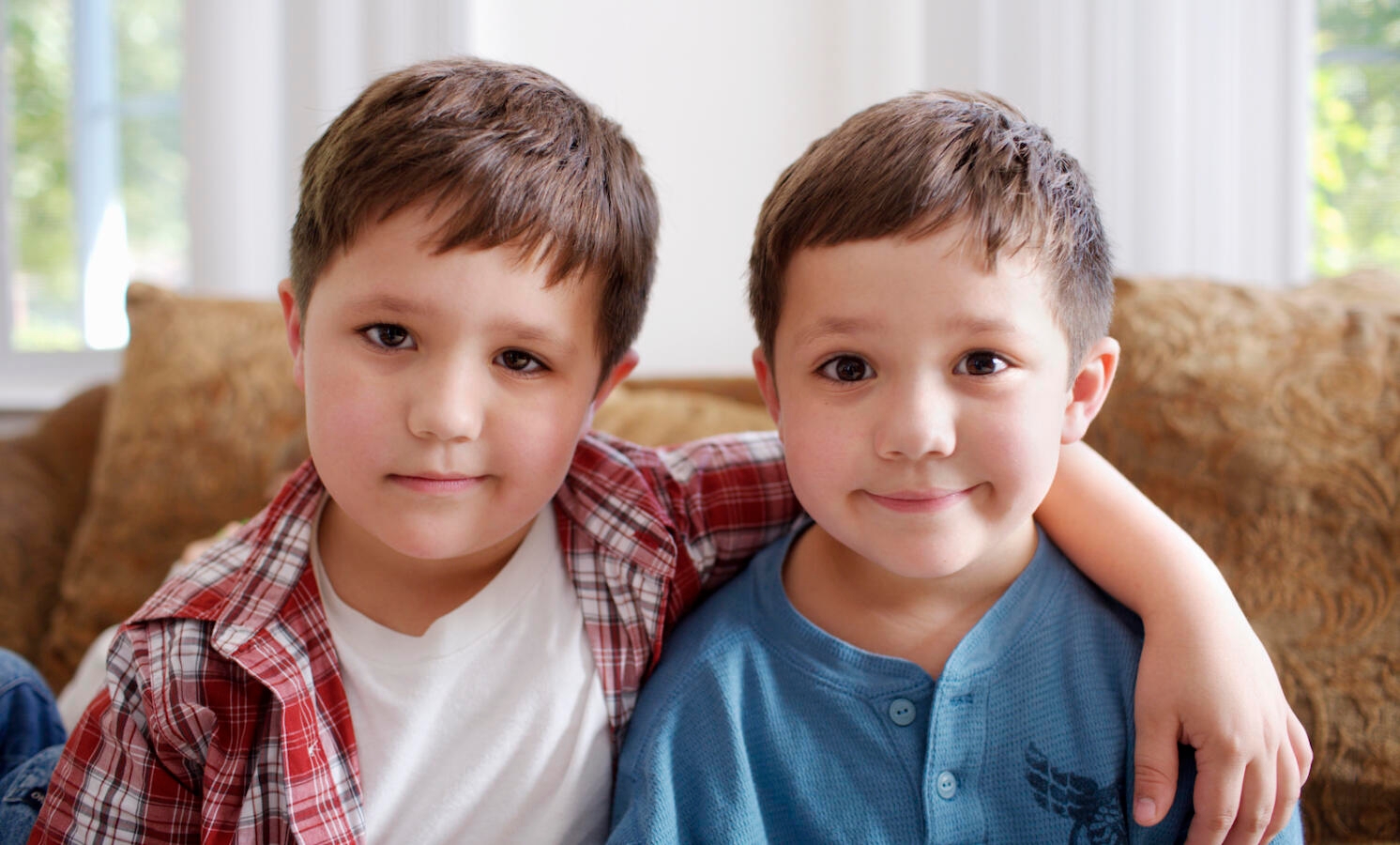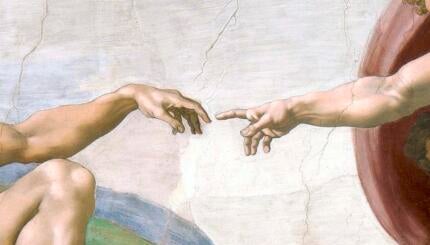Whether or not we are able to enjoy this holiday weekend in the physical presence of family, Thanksgiving weekend is an opportunity to reflect on the longest-standing relationships of our lives: our siblings. We may no longer live in the same homes, and our lives may have long since gone in different directions, but there is something about a brother or sister that tugs on one’s soul like no other relationship. Siblings turn over the topsoil of one’s own identity in a way nobody else can. As the saying goes, siblings are nature’s way of creating slightly different versions of ourselves, the most honest prism by which to view ourselves.
This week’s Torah portion is Toldot, meaning “generations” — a fitting title given its focus on the passing down of birthrights and blessings from one generation to the next. Esau and Jacob struggle from the very beginning. They could not share a bowl of lentil soup without provocation, let alone a Thanksgiving dinner. They fight even in the womb, prompting God to respond to their mother Rebecca’s pain by saying: v’rav ya’avod tza’ir. The older will serve the younger. Even before they arrive into this world, God indicates that an equitable allocation of covenantal blessing is not in the cards.
Whatever chance these siblings may have had to establish themselves on their own terms quickly dissipates as Rebecca and Isaac commit the unforgivable sin of favoritism. Intellectually, we understand it. Rebecca knew from her exchange with God where this story would be headed, and Isaac, perhaps due to his own tortured relationship with his father, saw something special in his outdoorsy, varsity jacket-wearing Esau. Whatever the reasons, it does not take much to imagine the toxic effect this must have had on the boys. They were constantly sizing each other up, measuring themselves against each other, jostling for their parents’ attention. It is why they fought in life as they did in the womb, competing for the limited resource of their parents’ attention, blessings and love.
At the heart of this enmity is the misguided and hazardous belief that blessings are a zero sum game, limited in number and indivisible. Only one of the brothers could be a dweller of tents, only one a man of the field. Only one could be the favorite and only one could receive the birthright. Their destructive relationship was based on the corrosive idea that what one brother had, the other could not.
With your help, My Jewish Learning can provide endless opportunities for learning, connection and discovery.
Indeed, the most emotionally searing verse of the entire tale, if not of the Torah itself, comes towards the end of this week’s portion as Esau cries out to his father upon learning that Jacob had taken away his blessing: “Have you but one blessing, father? Bless me too, father!” It was inconceivable to any of the family, and perhaps even to God, that life, love and blessing need not be limited to only one of them.
While the biblical laws of primogeniture have thankfully long since fallen by the wayside, many of us somehow still believe that blessings amongst siblings operate in a zero-sum matrix. For some reason, we tell ourselves that there actually exists a wise child and a wicked child, an academic one and an athletic one. Against all logic and medical evidence, we think DNA is distributed, like a black Friday sale, on a first come, first serve basis. Like our biblical predecessors, so many of our families fall victim to this ancient and harmful worldview. After all, if there is a limit to God’s blessing, then it is understandable that we should believe that our siblings’ blessings come at the expense of our own.
Happiness is not a bowl of lentil soup whereby one brother takes a gulp and less is left for the other. Of course, there are inequities when it comes to the genetic lottery, and all parents fumble with the question of how best to encourage a child towards their strengths. But at a certain point, regardless of our birth order, the hand we have been dealt, or the missteps our parents have made along the way, we will be who we will be owing to nothing but our own choices. There is only one answer to Esau’s throbbing question: Yes, of course there is more than one blessing. Blessings are not commodities with set limits. Which may be why the Midrash says that the messiah will not arrive until the tears of Esau cease to flow. Only when siblings cease to experience Esau’s agony — the mistaken belief that only one blessing exists — will redemption arrive.
The story of Jacob and Esau does not end this week. Two weeks from now, the two brothers will meet again after having spent decades apart. They will embrace and they will weep. Jacob will greet his brother bearing gifts, and in response, Esau will say: yesh li rav. I have enough. On closer inspection, this is a subtle rejoinder to that in utero comment regarding Esau: rav ya’avod tza’ir. Esau is no longer in need of gifts, birthrights and blessings. All those people, himself included, who would have him measure his worth relative to his brother were just plain wrong. Esau is happy with his portion and Jacob responds with words as beautiful as they come, words to which we should all aspire to say to our siblings: “To see your face is to see the face of God.” We are both created equally in the image of God. There is more than enough to go around. Your joys are my joys, your sorrows are my sorrows, your blessings are my blessings.
Israel Zangwill once wrote, “It takes two men to make one brother.” As our biblical forbearers learned, in order to be the people we seek to be, we must first be grateful for the greatest gift of all: the gift of a sibling. This Thanksgiving weekend, may we merit to recite the greatest and truest expression of gratitude our people know: “How good and how pleasant it is that siblings dwell together.”
This article initially appeared in My Jewish Learning’s Shabbat newsletter Recharge on Nov. 26, 2022. To sign up to receive Recharge each week in your inbox, click here.



